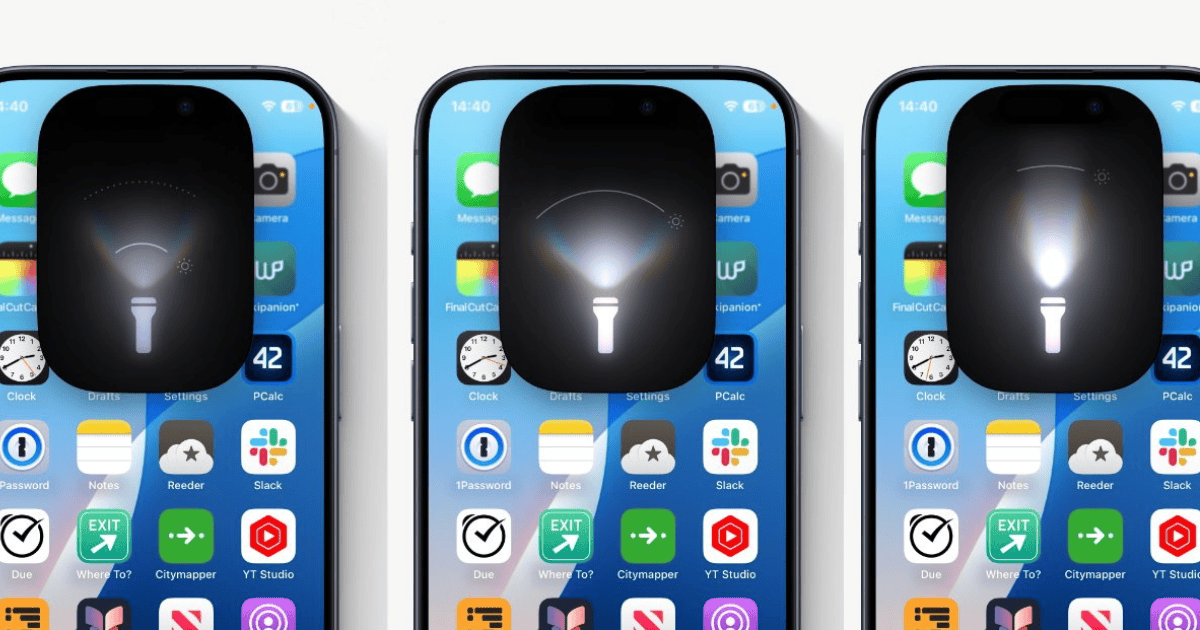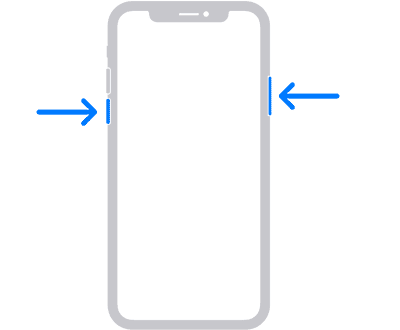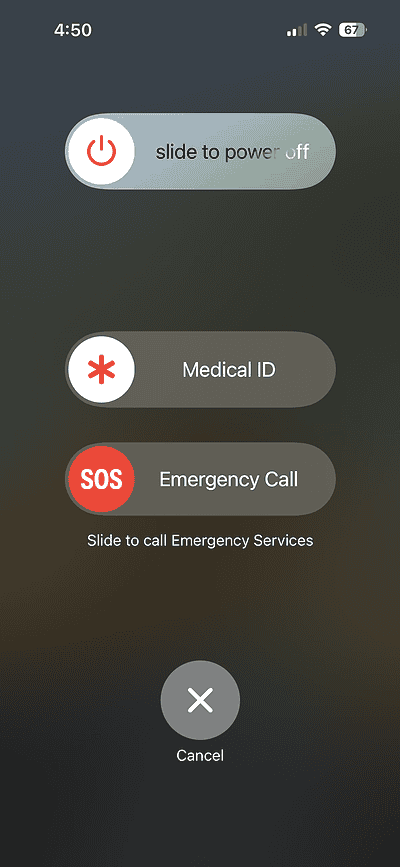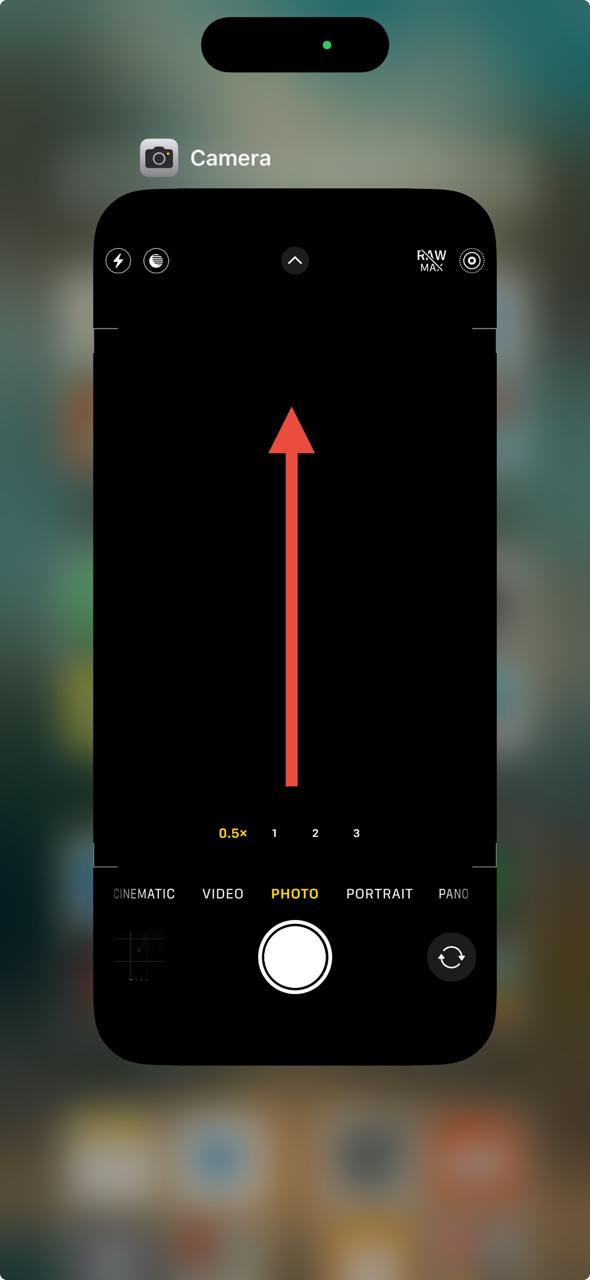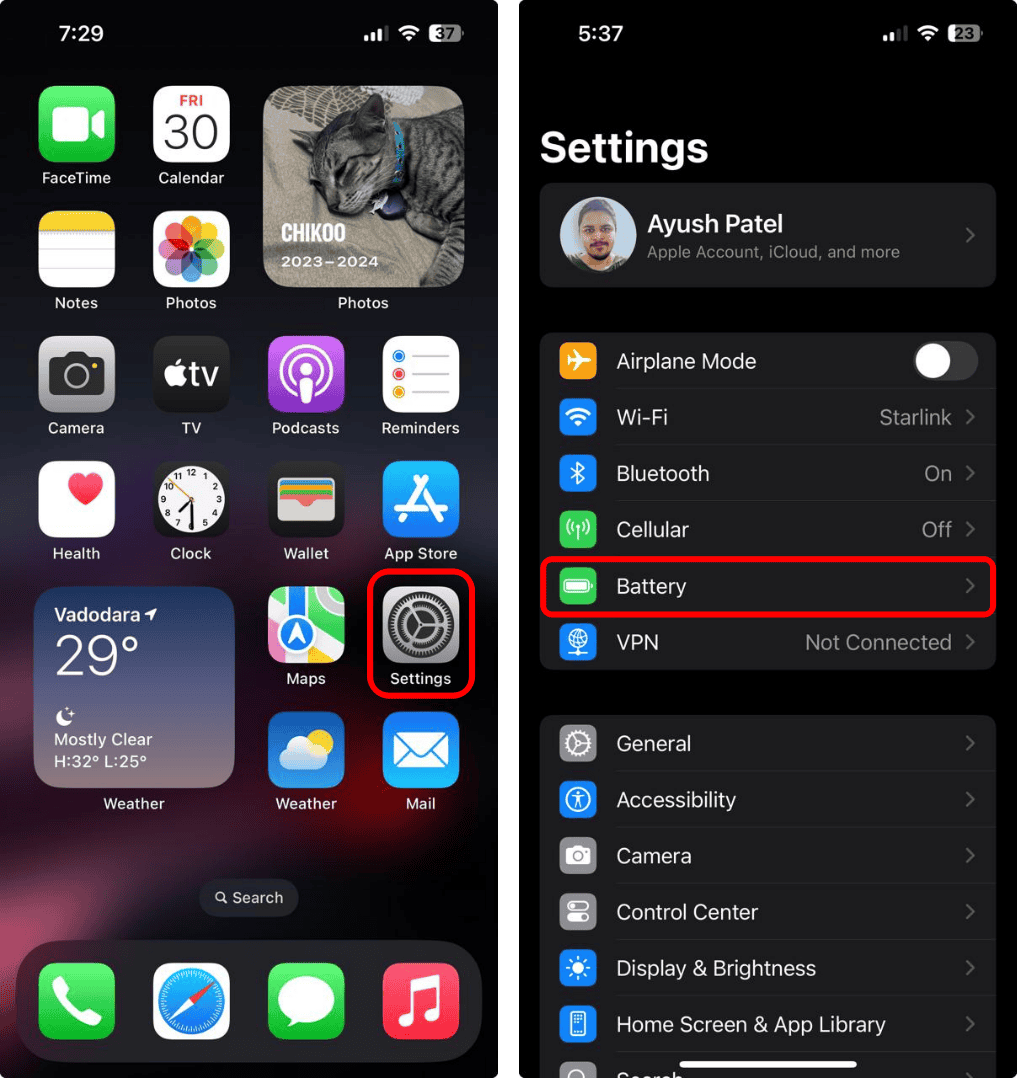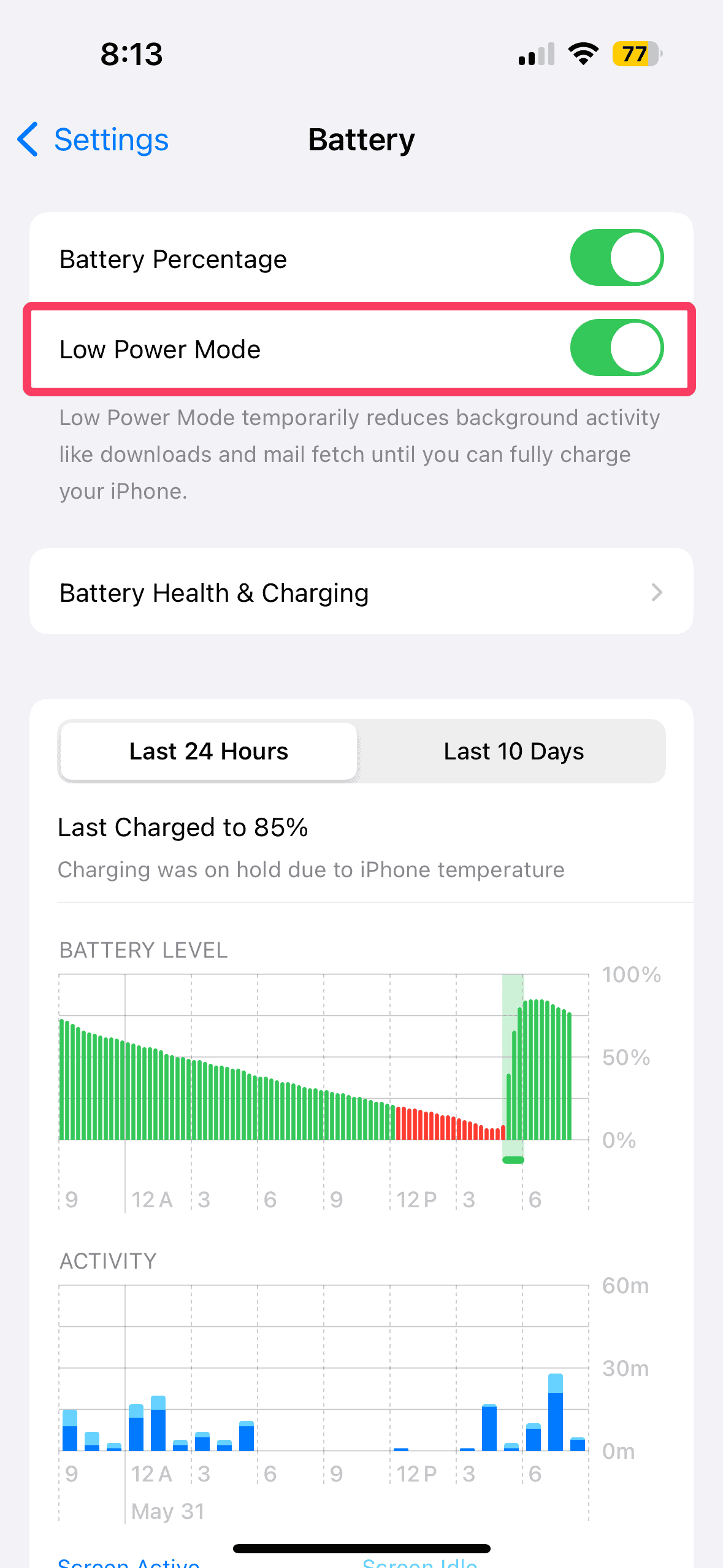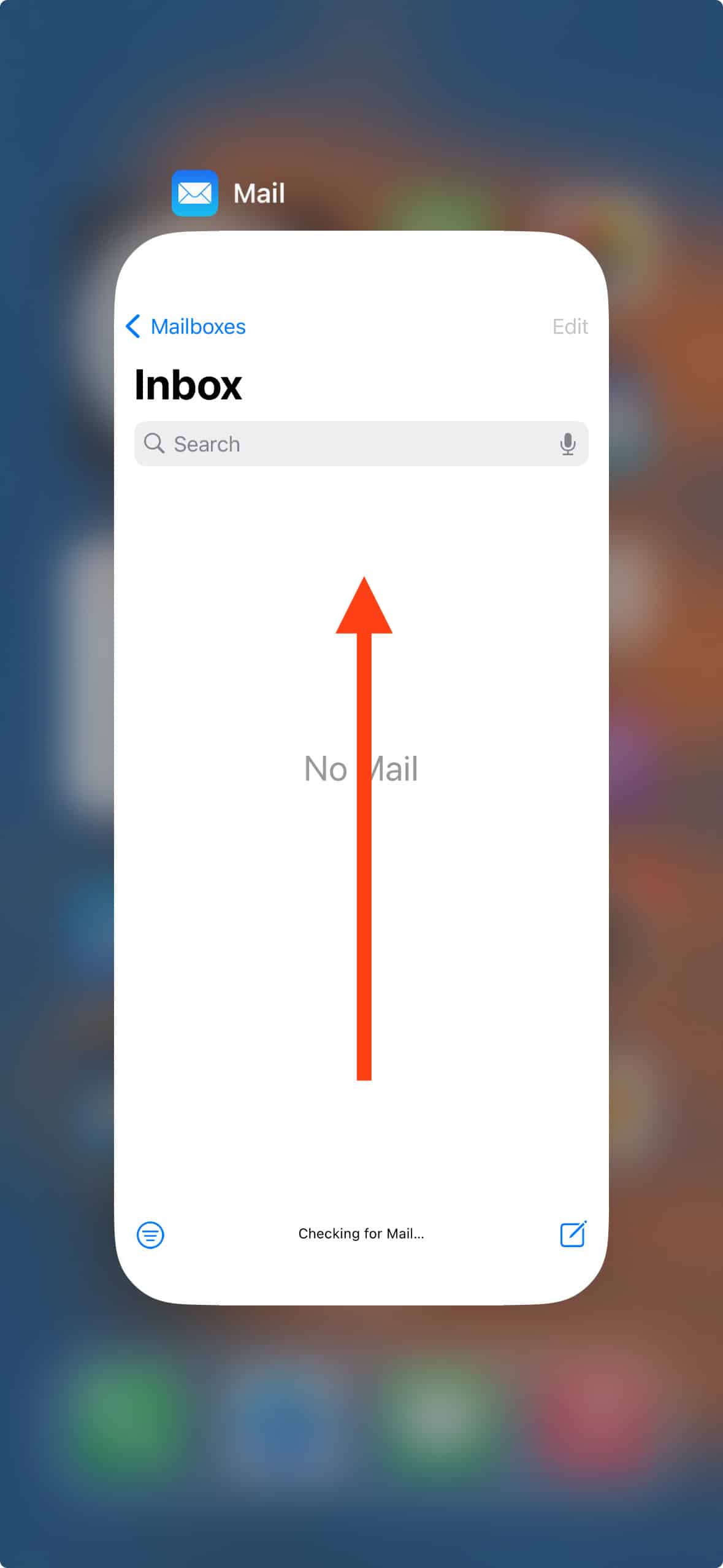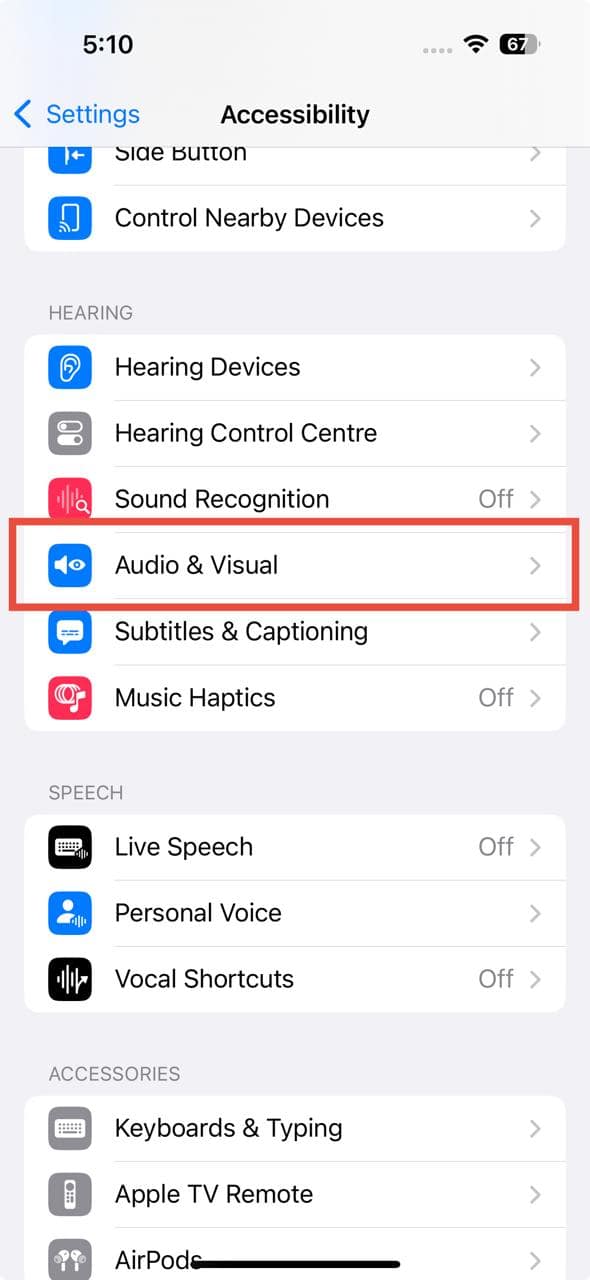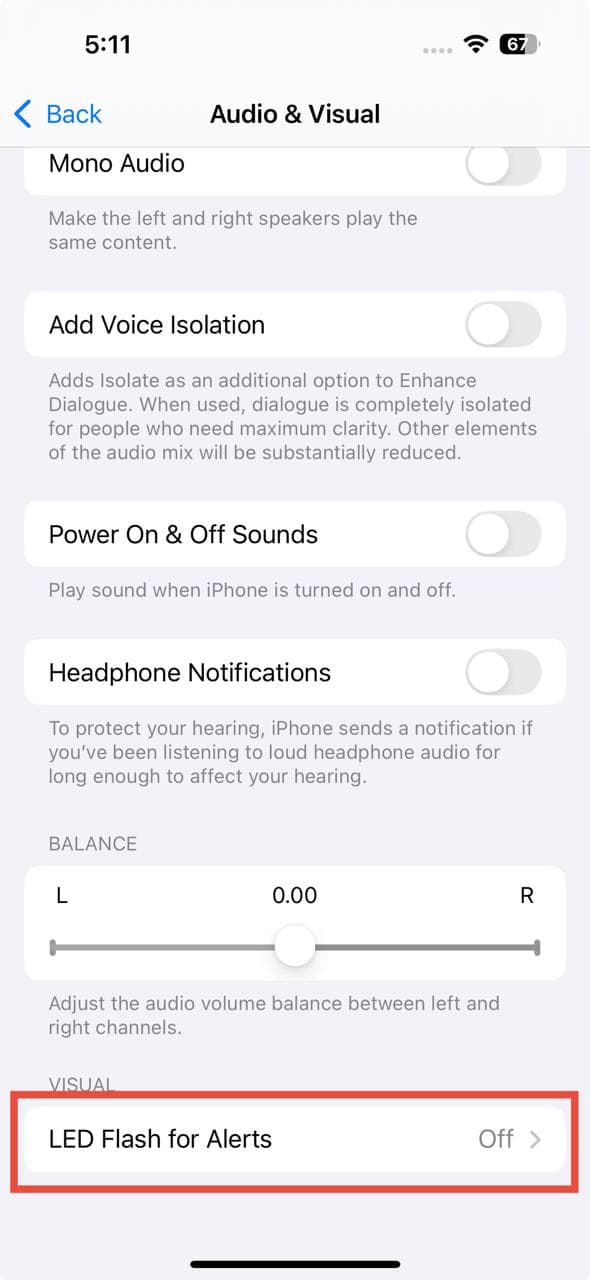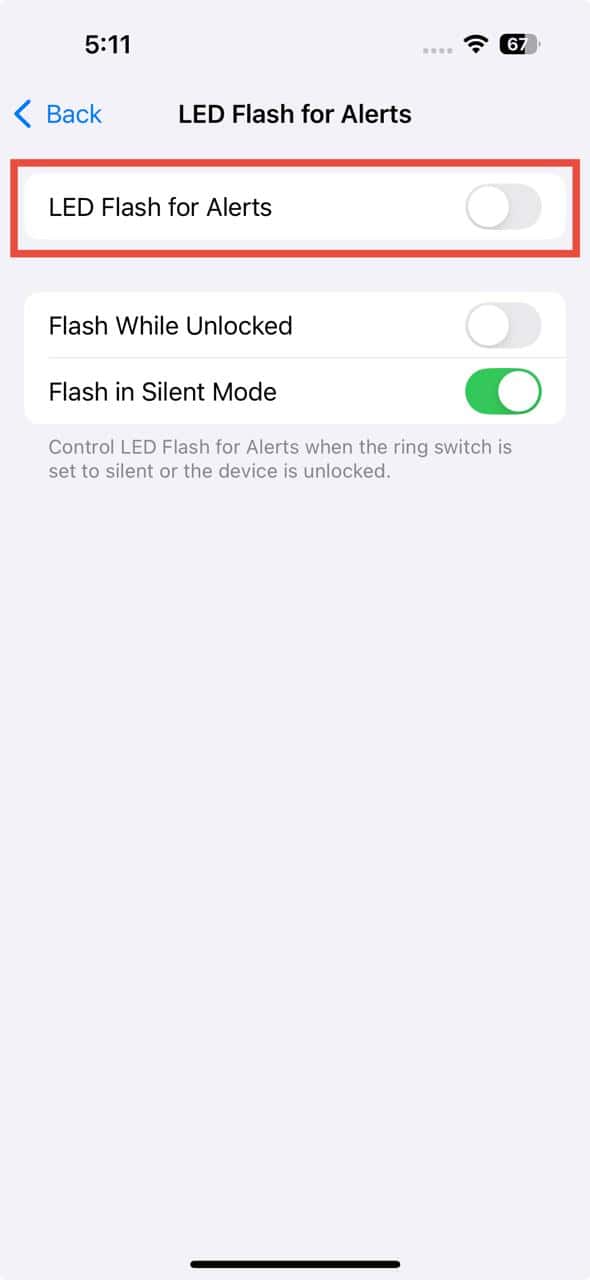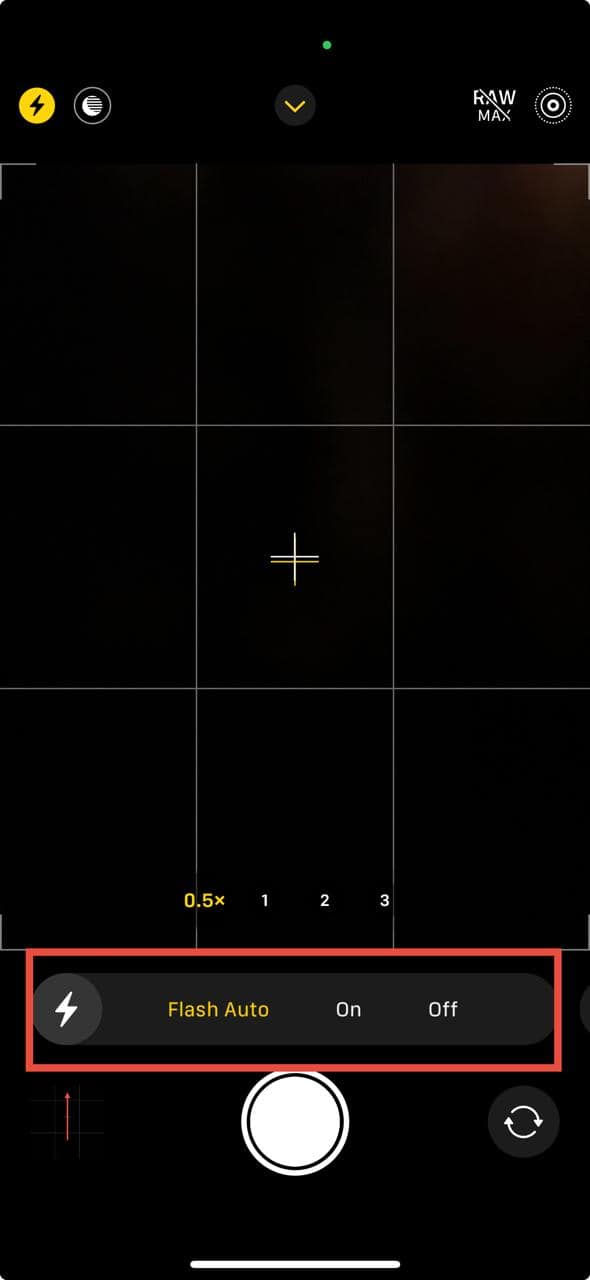My iPhone’s flashlight is my best friend when I have to walk in the dark dorm hallways at night. So, when iOS 18 was released with a complete overhaul of the flashlight feature, I was pretty excited to try it out. However, instead of improving the feature, iOS 18.2.1 introduced a glitch that caused the iPhone flashlight to stop working entirely. Thankfully, my tech expertise came through, and I was able to bring my best friend back from its coma. Here’s everything I tried to get my iPhone flashlight working again.
How to Fix iPhone Flashlight Not Working After iOS 18/18.2.1 Update
1. Check for Obstructions
The first thing you should do is check if anything is blocking your camera and flashlight. Remove any case, camera protector, or accessory covering the back to make sure the flashlight is uncovered.
2. Restart Your iPhone
I’ve found that a simple restart can often fix minor software glitches that cause the flashlight issue in iOS 18/18.2.1. Restarting your iPhone refreshes the system without affecting any of your data. Here’s how to do it:
Time needed: 1 minute
- Press and hold the Power and Volume Down/Up buttons simultaneously for a few seconds until the power off screen appears.
- Drag the Slide to Power Off button to the right to switch your phone off. Wait for a few seconds.
- Press and hold the Power button until the Apple logo appears on the screen.
3. Turn Off the Camera
Background camera processes can sometimes interfere with the flashlight, especially if you recently took pictures with your camera’s flash on. When this happens, simply closing the camera app and any related processes usually fixes the issue. Here’s how to turn off the camera:
- Swipe up from the bottom of the screen to bring up the App Carousel.
- Swipe up on the Camera app if it’s open.
4. Check Your Battery Level
When your iPhone’s battery gets low, iOS sometimes disables features like the flashlight to save power. Since the iOS 18/18.2.1 update can be resource-intensive, your iPhone might need charging before the flashlight works again. Make sure to keep your battery charged so you can use all the features without any issues. If you are facing battery issues after the update, check out our guide on how to fix iOS 18.2.1 draining your battery.
5. Cool Down Your iPhone
Sometimes, when your iPhone overheats, the flashlight won’t turn on. At first, I thought this might be an issue with the hardware, but it turns out it’s just a protective feature. When the phone gets too hot, the flashlight shuts off automatically until it cools down.
When this happens, stop using your phone and place it in a cool, dry spot away from direct sunlight. Let the temperature drop naturally before trying the flashlight again.
6. Turn Off Low Power Mode
When you turn on Low Power mode, it disables power-hungry features, apps, and background activities to save battery. Sometimes, though, the iPhone’s flashlight doesn’t work, likely due to a glitch with this mode. To fix it, just turn off Low Power mode:
- Open the Settings app, then tap Battery.
- Disable the toggle for Low Power Mode.
7. End Video Calls
While you are on a video call, the flashlight option in the Control Center is grayed out. iPhones don’t allow you to use the flashlight during a FaceTime or video call, so make sure you end any calls before trying to turn on the flashlight.
If you’re not on any call right now but Facetimed or video-called someone recently, chances are your phone’s stuck in a glitch where it thinks you’re still on call. To bring it back to its senses, force close the app you were using to video call in the App Switcher.
8. Quit Apps Running in the Background
Force close any apps that use your phone’s camera, like Snapchat, Facetime, WhatsApp, or Instagram, to ensure your phone’s not glitching.
- Swipe up from the bottom of the screen to bring up the App Carousel.
- Swipe up on the apps you aren’t using one by one to close them.
- Tap anywhere on the screen beside the App Carousel to close it.
9. Check LED Flash for Alerts
The iPhone has a feature that causes the LED flash next to the camera lens to blink whenever you receive a notification, which is really helpful if you miss the sound alert. Turning this feature off and then back on can sometimes fix any flashlight glitches. While it doesn’t work for everyone, it only takes a few seconds to try, so why not give it a shot?
- Go to Settings.
- Tap Accessibility > Audio & Visual.
- Tap LED Flash for Alerts and tap the LED Flash for Alerts toggle to turn it off. Tap to turn it on again.
10. Test Flash in Camera App
A quick fix to the iPhone flashlight not working issue is to toggle the flash through the Camera app and adjust the settings. You can also try snapping a photo with the flash on to check if the LED light works properly.
Based on my experience, it’s better to keep the flash set to either on or off, depending on what you need, instead of using the Auto feature. The Auto mode adjusts to your surroundings and can sometimes prevent the flashlight from turning on. To adjust the Flash settings:
- Open the Camera app on your iPhone.
- Swipe up to bring up the options tray.
- Tap the Flash icon, then select either On or Off.
11. Take Your iPhone to an Apple Genius
If you tried all the methods above and your iPhone’s flashlight still won’t turn on, it is most probably a hardware issue. It might be time to reach out to Apple Support or visit a Genius Bar near you. If you bought your device within the last 90 days, you will have free complimentary support. If you’ve got AppleCare+ or another insurance plan, you can get your device repaired by just paying the service fee or deductible.
